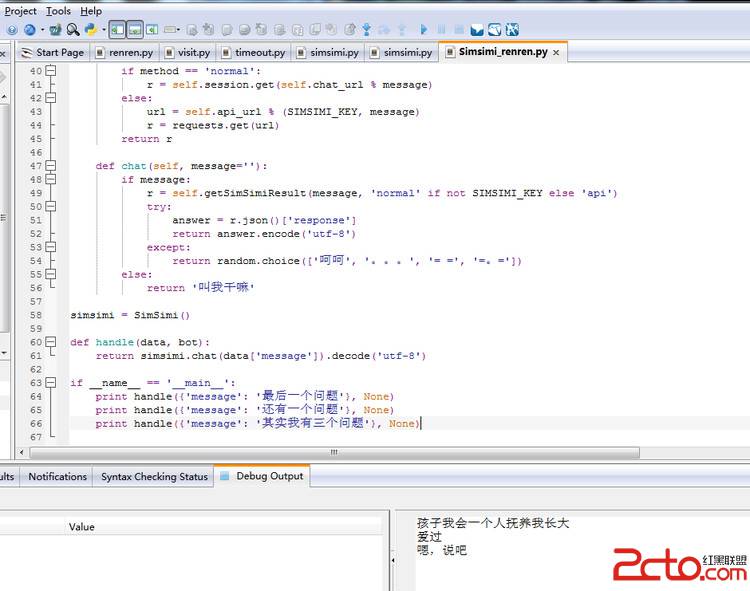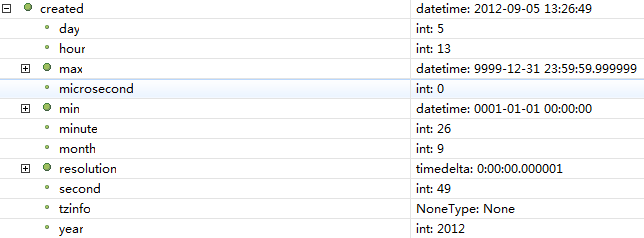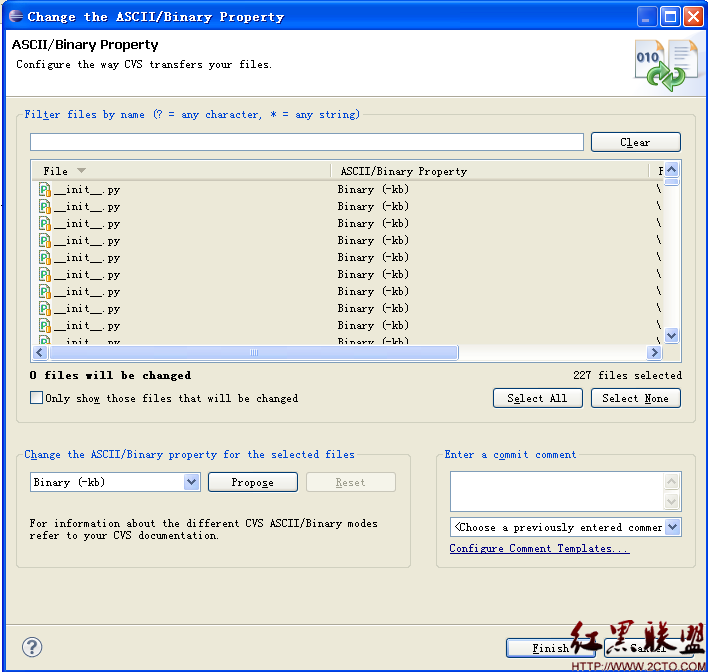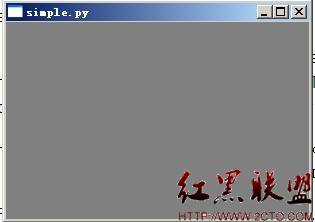C语言调用PYTHON脚本-2
C语言调用PYTHON脚本-2
python代码二段:
call.py
def test():
print 'hello world'
def add(a,b):
return a + b
api.py
import io
def load_test():
fp = open('call.py','r')
buffer = ''
if fp:
buffer = fp.read()
fp.close()
return buffer
cpp代码:
#include <stdio.h>
#include <stdlib.h>
#include <Python.h>
int main(int argc, char *argv[])
{
Py_Initialize();
if(!Py_IsInitialized())
{
return -1;
}
PyRun_SimpleString("import sys");
PyRun_SimpleString("sys.path.append('./')");
PyObject* pName;
PyObject* pModule;
PyObject* pDict;
PyObject* pFunc;
pName = PyString_FromString("api");
pModule = PyImport_Import(pName);
if(!pModule)
{
printf("can't find call.py");
getchar();
return -1;
}
pDict = PyModule_GetDict(pModule);
if(!pDict)
{
return -1;
}
{
pFunc = PyDict_GetItemString(pDict,"load_test");
if(!pFunc || !PyCallable_Check(pFunc))
{
printf("can't find function [test]");
getchar();
return -1;
}
PyObject *pFn = PyObject_CallObject(pFunc,0);
char* buffer = PyString_AsString(pFn);
printf("%s\n",buffer);
PyObject* o = Py_CompileString(buffer,"none",Py_file_input);
PyObject* m = PyImport_ExecCodeModule("a.a",o);
PyObject* d = PyModule_GetDict(m);
pFunc = PyDict_GetItemString(d,"add");
if(!pFunc || !PyCallable_Check(pFunc))
{
printf("can't find function [add]");
getchar();
return -1;
}
PyObject* args = PyTuple_New(2);
PyTuple_SetItem(args,0,Py_BuildValue("l",3));
PyTuple_SetItem(args,1,Py_BuildValue("l",4));
PyObject *pAdded = PyObject_CallObject(pFunc,args);
int ret = PyInt_AsLong(pAdded);
printf("add value:%d\n",ret);
}
Py_Finalize();
system("PAUSE");
return 0;
}
这段代码和上一篇有点区别
主要区别是从从内存载入python模块然后调用函数
主要部分是这块:
PyObject* o = Py_CompileString(buffer,"none",Py_file_input);
PyObject* m = PyImport_ExecCodeModule("a.a",o);
PyObject* d = PyModule_GetDict(m);
buffer是python源码字符串
补充:软件开发 , C语言 ,





